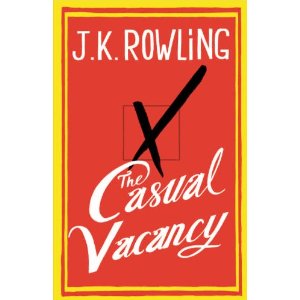 Editor’s Note: The following reflects the opinions of the author.
Editor’s Note: The following reflects the opinions of the author.
It’s difficult to read the first few chapters of J. K. Rowling’s “The Casual Vacancy” without inserting the characters onto Privet Drive as Muggles.
And I’d be lying if I said wasn’t a bit sad to realize that there would be no broomsticks or magic this time around.
But this is a novel for adults.
Rowling’s first wave of “Harry Potter” fans have grown up, and her writing followed suit.
The more readers get into the book, though, they realize that despite the lack of magic and the strangely jolting use of curse words and sexual themes, it’s still writing they’re very familiar with.
Rowling has a gift for character study and development that stripping characters of magic abilities and writing to an older audience hasn’t lost.
“The Casual Vacancy” opens with a death of the beloved parish councilman Barry Fairbrother. The novel’s central plot is the decision on who should fill the “casual vacancy” left by his death — hence the title. The town struggles to find someone who will either support or oppose the rezoning of the Fields, the housing project.
Essentially the novel is about class struggle, a theme that ran through most of the “Harry Potter” books taking the form of the Pureblood and Mudblood strife.
In “The Casual Vacancy,” as in the real world, the struggle is a little less black and white. There is no purely good Dumbledore figure and no purely evil Voldemort in this novel.
The teenage characters — Sukhvinder, Gaia, Andrew, Fats and Krystal — are all weak and very human characters. If we must place them in the “Harry Potter” world for reference, they’re sort of Ron Weasley types, but a part of the drug, alcohol and sex lifestyle that actual, non-magical teens encounter.
The adults are equally, if not more flawed, which is another familiar J.K. Rowling device. Ultimately, if you grew up reading “Harry Potter,” you’ll like this novel. If you love to read, you’ll love this novel.
But if you’re a 12-year-old or still stuck on the “Harry Potter” series, let Deatheaters and Horcruxes be the darkest things you’ll read for awhile.
Though just as well-written, the real world of heroin addiction, poverty and sex is much less fantastic.
Rating: Three and a half out of four stars
Story: EMMA SPECKMAN, A&E Reporter

